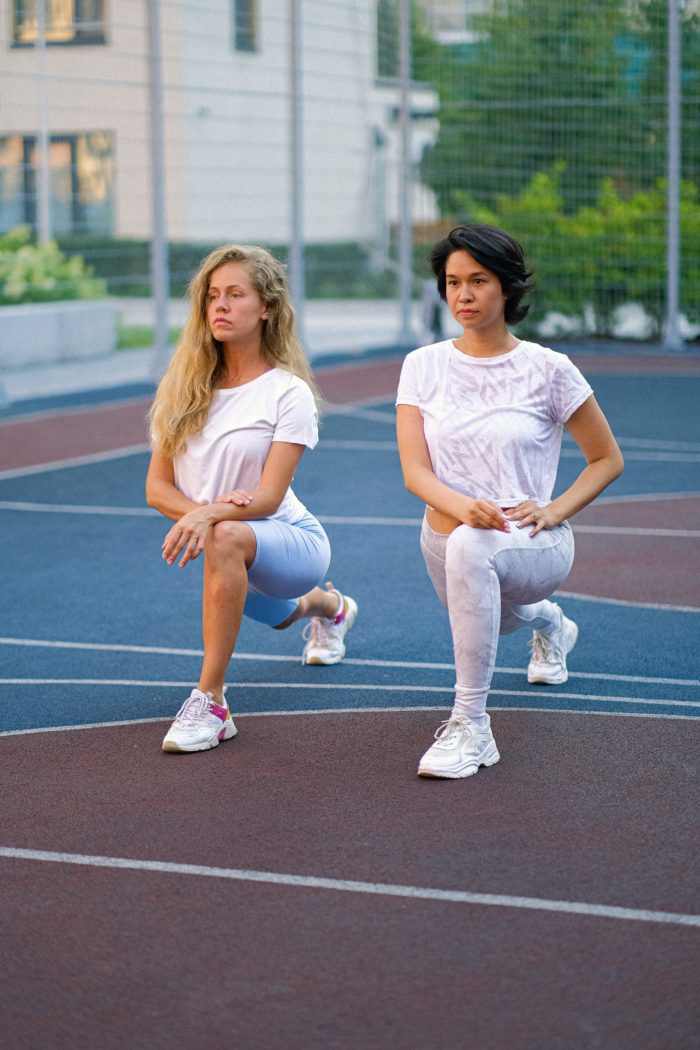Lesson Overview
This lesson will help young people understand why exercise is important to the mind and body. Young people experience how they feel different before and after exercise. They evaluate how much exercise they get each day and think of ways they can be more active.
Introduction
Ask young people: Why is it good to work out and exercise?
There are so many reasons why exercise is important; Some of the most important things that young children should know are:
Exercise is good for your heart. It helps your heart pump blood around your body. Your heart can never take a break, so it has to be strong! Eating well and exercise help. Exercise can lift you in a good mood. When you exercise, your body produces a chemical called endorphins, which helps you feel good. Exercise helps your body maintain or achieve a healthy weight. The food you eat is the energy you put into your body. This energy is also called “calories.” To maintain a healthy weight, you need to use edible energy. Exercise will help you with that. If you don’t use energy, it stays in your body and you can win that you don’t need it. The extra weight is hard on the heart, muscles and bones.
Energy in energy out
Explain that “Energy within” is the food and drink we eat. “Energy off” is the physical activity or exercise we perform on a daily basis.
Talk to young people about what happens when we take in more energy than we take it away and vice versa. Our body needs energy to grow properly. If we regularly eat and river more than our bodies need, we can become overweight. Explain the importance of a healthy balance in the growth and health of our bodies.
Activity: before and after
As the young people sit still, you can explain that you want to do a classroom exam that includes an internship.
Draw a vertical line through the center of the flip chart or board. Select one column “before” and another “after”.
Ask for words that describe the feelings of the young people as they sit still in their chairs. Encourage them to be aware of the mood in which they are, what their body is telling them and how much energy they have. They can say, for example, calm, tired, embarrassing, boring, pleasant. Whatever they say is great, as long as they say what they really feel. Enter these words or phrases in the “before” column.
Guide young people through a variety of exercises such as high knees, marching in the classroom, sitting, pushing to push, jogging in place, or jumping on jacks. See if anyone has any suggestions for action. Practice for at least five minutes before the youngsters return to their seats.
Now ask them to tell you how they feel after the workout. Write these words in the “after” column. They can say, for example, awake, awake, happy, full of energy, excited.
Activity: Thinking about exercise habits
Ask young people how much time do children need to practice daily? How can you get more? The answer is that it is good to take at least an hour, but wait for the offer until the young people present their own proposals. Then use the following questions to help them think about their own ways of exercising.
How much do you train at school? Ask young people to think about how much time they spend at the gym and how much free time they spend. Ask them if it’s an hour an hour a day. You can add time to the board.
How much exercise do you get when you are home after school? If young people say they don’t exercise after school, ask them what they do instead of exercising. Ask them what their favorite workout is and plan how to do it more. They can turn off the TV after 1 p.m. Kl. 19 encourages the family to go for a walk before or after dinner or to go out to play with their friends.
What about training on the weekends? Ask the young people to make a list. Make sure they remember things like football, dancing, etc. And also play outdoors with friends. In fact, it can be anything that requires your body to move around, such as cycling, dog walking, running, helping in the garden, ballet classes, football training, gymnastics, anything that makes your body beautiful. Activities. Once the young people have presented their list, you can ask them to write down the days they can add to the exercises they have already done so they can get to class each day.


